#Kinship Networks
Text
👨👩👧👦Out with Incest Laws: Reconsider Blood Quantum Laws in Native Reparations
An open letter to State Governors & Legislatures
1 so far! Help us get to 5 signers!
I am writing to express profound concerns about the continued reliance on Blood Quantum Laws, or Indian Blood Laws, in Native Reparations Programs. These laws, established by federal and state governments as far back as 1705, define Native American status based on fractions of Native American ancestry, perpetuating harmful consequences for tribal communities and some, alarmingly, terminating before just 5 generations.
The use of Blood Quantum Laws has led to detrimental effects on Native American families and communities. It has incentivized harmful family planning practices, compelling individuals to marry within close kin networks to maintain "pure bloodlines." This practice not only violates individual autonomy but also jeopardizes genetic diversity and the long-term viability of tribal populations.
Of utmost concern is the declining population within many tribal communities, with some nearing critical thresholds of fewer than 1000 individuals. This situation is further exacerbated by the principles of population biology, particularly the 50/500 rule, which underscores the need for a minimum population of 500 individuals to reduce genetic drift and ensure sustained viability. It is troubling to note that these laws inadvertently encourage cousin marriages, posing additional risks to community health and resilience.
Moreover, Blood Quantum Laws impose an arbitrary expiration date on government-funded reparations and jeopardize the cultural continuity of these communities. By tethering Native American status to ancestry thresholds, these laws undermine the diversity and autonomy of tribal enrollment criteria.
I urge policymakers to urgently reconsider the use of Blood Quantum Laws in Native Reparations Programs and advocate for a more inclusive and sustainable approach to reparations. This approach should prioritize the cultural and social integrity of Native American communities, safeguarding their continued existence and resilience for future generations.
Our villages were razed by colonizers, our ancestors were genocide survivors, and, as ever, our children bear the enduring impacts of historical injustices.
Thank you for considering these critical issues and taking decisive action to address them.
Source:
📱 Text SIGN PBDXGL to 50409
🤯 Liked it? Text FOLLOW IVYPETITIONS to 50409
#IVYPETITIONS#PBDXGL#resistbot#Blood Quantum#Native American#Reparations#Tribal Communities#Genetic Diversity#Indigenous Rights#Cultural Integrity#Population Biology#Government Policy#Historical Injustices#Tribal Enrollment#Ancestry Criteria#Native Identity#Kinship Networks#Genetic Drift#Tribal Sovereignty#Cousin Marriages#Diversity and Autonomy#Indigenous Heritage#Colonial History#Policy Reform#Social Justice#Human Rights#Cultural Survival#Community Health#Historical Trauma#Advocacy
3 notes
·
View notes
Text
AJR was right. It really doesn't seem like there's anyone for me
#not talking romance even btw. although sure yeah that too. but.#I don't know. 28 years without the kind of friendships where you casually hang out a lot#without a social network that you can see weekly.#it's not that I don't appreciate online and farther away friends. it's not. god knows they are my lifeline#but I can feel my heart growing a little more tired and a little colder every so on#and look. I go to activities and have some groups I genuinely enjoy being in#but it has to be said there are 0 individual bonds with anyone there. I enjoy the environment and physical presence of the group#but I can't call any one individual a friend. and that is hard#I know people say to find activities for shared interests and I'm sure some people find friends that way#and I have fun and new experiences but I don't. make friends. like it just doesn't happen#I don't know. I feel like I might as well wander through life as a ghost. virtually impactless#and it's fine. I'll wander through life. I'll travel to experience temporary kinship. all along I'll feel sorrow at the prospect of leaving#but in the end I will come home to an empty house and that is where one day I will die#it's just how it is. it's how it's always been. at a certain point you can't really ask for that miraculous turnaround in life anymore#nothing is going to magically shift. not when life time and time again grabs you and says this is who I am for you#you can wish and wait and hope and it will never ever be anything but this#bien rambles
6 notes
·
View notes
Text
Quick worldbuilding hack, if you want to make a coherent political system for your fantasy world:
Basically, between the fall of Rome and early modern times, in Europe* most political organization wasn't actually kingdoms ruled by One True King like it's usual in fantasy, but something like this:
Feudalism: here, the center of power was not the nation (there was little concept of such thing) or the state, and not even the King, but the landowners (from kings to dukes to counts...) and their network of vassalages to each other. There were no "countries" but rather hereditary titles, and the people who held them. There was little of a true state besides what individual rulers did; they didn't even have formal armies as such, but rather the vassals who provided them, they and could have multiple allegiances. Examples are of course the Holy Roman Empire (neither holy, etc. etc.) France (note that the 100 Years War was a dispute about titles rather than France vs. England), Spain (actually a bunch of kingdoms and crowns rather than a country), etc...
"Empires": A state where a central goverment exerts power over other territories and peoples. These are rather familiar to us, because a formal state exists here, and the ruler is more powerful and often does have a standing arming and administration instead of relying on vassals. Here, there is a bureacracy and a claim to rule a territory, and while they might have vassals and prominent artistocratic families (everyone did) their administration was state-based, not allegiance based. The Roman Empire is the most imperial empire, as well as its cringefail successor the Byzantine Empire, but note that the great Islamic empires also had this kind of administration, with governors appointed and confirmed by the imperial court.
City-States: Basically a powerful city (though they were often the size of small towns, still, very rich) ruled by a local aristocracy, sometimes hereditary, sometimes elected from a few families or guilds, or a mix of both, and in some cases ruled by religious authorities. These could be independent or organized in alliances, but were often vassals of more powerful goverments such as above. Cities are in many way the building brick of larger states; of note, in the Ancient Mediterranean before Rome conquered it all, leagues of city-states were the main powers. Medieval and Early Modern independent city states were the Italian city states of course, and a famous league was the Hansa (many of its members themselves vassals of other powers)
Tribes and Clans: Every culture is different with this, but basically here the centre of power is the relationships between families and kinship. If this sounds familiar to Feudalism, you've been paying attention; Feudalism is what happened when the Roman empire and administration fell, and it was replaced by landowners and their ties of vassalage and allegiances.
Now, besides the history lesson, why is this important? Because there are reasons why rulers had their power, and you should know that.
A king never ruled alone. He was only the head of nobles tied by vassallage (feudalism), or the head of a inherited state bureaucracy and army ("empire"). If you killed the king, another one would rise from the prominent families. Often by bloody civil wars or conquest yes, but the system overall would stay. A king did not reign by its own power or virtue, but because the system itself supported him, and of course, he maintained the system.
A new king who wants to replace the bad old king (a common fantasy storyline) needs to also deal with the allegiances of all its vassals (who would probably rather kill him and take the throne themselves) or build a bureaucracy and an army, supremely expensive endeavors in those times, which took decades if not centuries to build. In fact, the Byzantines and the Arabs inherited most of their state aparatus, in one way or the other, from the Romans.
This is also why these systems lasted so long, too. The appearance of modern republics and other systems of goverment needed the coordination of people and revolutions that did not just kill the king, but also replace it with something else, and for that you need literacy, economic changes, an empowered populace... But that's for another time.
I hope this is fucking helpful because I don't want to spell allegiance ever again.
*I would love to do more about goverments outside Europe, especially Precolombine American ones like the redistrubitionist state-based economy of the Incas, or the Mesoamerican city-states. But that's for another time.
1K notes
·
View notes
Note
hello ave ! i was wondering if you’ve watched the 2022 interview with the vampire series and if so what you thought of it
i really enjoyed iwtv! i haven’t read rice’s novel but as far as i understand it, the show was a pretty significant departure from the original text, at least where rice’s engagement with race is concerned—i think the show seems pretty determined to strike out on its own, and thus far seems to be doing a pretty good job of that. i think what i found most interesting was the show’s honing in on a relationship between the coercive enforcement of normative kinship structures and the social abjection of the slave relative to the white master (i’ve been reading vincent woodard’s the delectable negro which expounds on this idea of like, rape + abuse + consumption extant within models of kinship relations, ‘the ideological infrastructure of childhood in slavery’ as he puts it, which i think has a lot of explanatory power around lestat/louis/claudia…); there’s lestat’s ‘teaching’ vampirism to louis which of course then morphs into physical abuse & that the text makes clear can be read parallel to a relationship between a slavemaster and a slave, and there’s the way lestat functions as a patriarch relative to whom we can read louis as the ‘wife’ and claudia as the ‘child,’ and the networks of [physical, economic, emotional] dependency, violence holding them all together.
i’m also quite interested in this idea of a ‘disciplined’ vampirism, or indeed vampirism as ‘disciplining’ (which is of course to say class-enforcing), because of course the dominant cultural narrative of the vampire (& the one with which i have the most familiarity) is that of a kind of nondifferentiated alterity which can be moulded into any number of metaphors. lestat to louis, of course, but also eg. lestat killing the opera singer who performed badly, the opulence of the mardi gras ball at the end (and something about consumption as disciplining—again tapping the vincent woodard sign but the mardi gras attendees coveting a kind of consumption of louis as a Black man only to then themselves be consumed), louis in 2021 comparing vampires who eat humans rather than animals to slaves (‘slaves to their appetites’ or similar, i forget the exact wording used, but it’s the language of body fascism plus the obvious pertinence with which slavery in the show as a whole is imbued—which ofc then invokes ideas around [un]disciplined bodies and racialisation) … it’s interesting how the show kind of plays both positions at once. the alterity metaphor is there, but so is the hegemony of sorts—vampirism disrupts louis’ position within a traditional family structure where vampirism stands for queerness, obviously, but also the intrusion of lestat (which is to say both queerness and slavery!) as a force that destabilises a Black family. it’s an interesting little balancing act and i’m looking forward to seeing where it goes.
anyway i also just think it’s a well-written show lol! visually gorgeous, erotic, indulgent, well-paced. i had a good time. no idea what happens next (again, haven’t read the book) but my ears pricked up at the idea of travelling from louisiana to europe … a transatlantic crossing, a reverse colonisation of sorts … there’s a lot you can do with that!
#ask#iwtv#slavery cw#someone could deffo do a reading of iwtv alongside woodard i'd be really interested in that
169 notes
·
View notes
Text
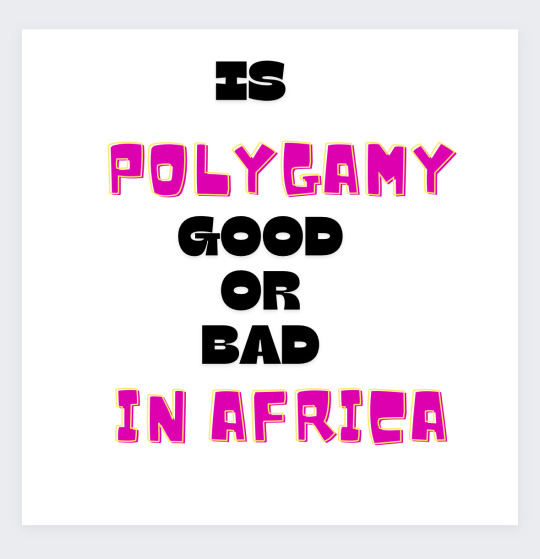
Read about African polygamy
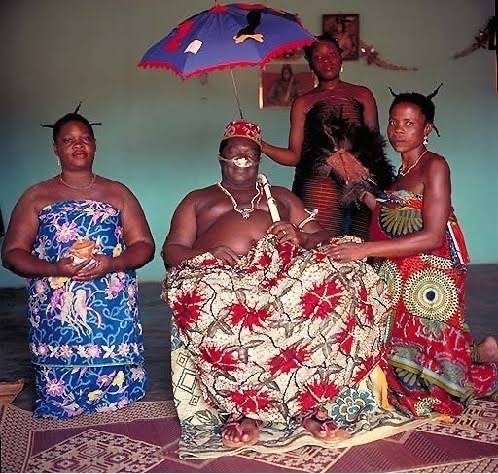
Historical Context:
Polygamy in Africa predates colonialism and is intertwined with traditional cultural practices and religious beliefs. In many African societies, polygamy was a symbol of wealth, power, and prestige, as having multiple wives signified a man's ability to provide for and protect his family. Additionally, polygamy served practical purposes such as expanding family labor forces and ensuring lineage continuation.
Polygamy, the practice of having multiple spouses simultaneously, has sparked debates and controversies around the world for centuries. While some argue that polygamy can have positive effects on individuals and communities, others condemn it as harmful and oppressive. In this article, we'll examine both sides of the argument to better understand the complexities of polygamy.
Cultural Significance:
In some African cultures, polygamy is seen as a way to strengthen family ties and social networks. It also plays a role in the distribution of labor and responsibilities within the household, with each wife often having specific duties and roles. Moreover, polygamous marriages are often accompanied by elaborate ceremonies and rituals, reinforcing social cohesion and community bonds.
Contemporary Perspectives:
While polygamy remains legal and socially accepted in many African countries, its practice has evolved in response to modernization, urbanization, and changes in societal norms. In urban areas, economic constraints and shifting gender dynamics have led to a decline in polygamous marriages, as the costs associated with maintaining multiple households become prohibitive. Moreover, women's empowerment movements and changing attitudes towards gender equality have challenged the patriarchal structures that underpin traditional polygamous unions.
Title: Debating Polygamy: Exploring the Pros and Cons of a Controversial Practice
The Case for Polygam

1. Cultural Preservation: For many societies, polygamy is deeply ingrained in cultural traditions and religious beliefs. Advocates argue that prohibiting polygamy infringes upon cultural autonomy and the right to practice one's beliefs freely.
2. Economic Benefits: In agrarian or subsistence-based economies, polygamy can provide economic advantages by expanding the labor force and increasing household productivity. Multiple spouses can contribute to farming, childcare, and other domestic tasks, thereby improving the family's overall welfare.
3. Social Stability: In some contexts, polygamy can foster social cohesion and stability by strengthening family networks and community bonds. Polygamous unions often involve extensive kinship networks, which provide social support and security for members.
4. Gender Empowerment: Contrary to popular perception, some women choose polygamous marriages willingly, viewing them as a means of financial security, social status, or companionship. In certain polygamous arrangements, women may have more autonomy and decision-making power than in monogamous marriages.
1. Gender Inequality: Critics argue that polygamy perpetuates patriarchal power structures and exacerbates gender inequality. In many polygamous societies, women have limited rights and agency, often facing discrimination, abuse, and neglect within the household.

2. Emotional and Psychological Harm: Polygamous marriages can lead to emotional strain, jealousy, and conflicts among spouses. Children in polygamous households may also experience psychological distress due to complex family dynamics and divided parental attention.
3. Legal and Ethical Concerns: Polygamy raises legal and ethical questions regarding marital rights, inheritance, and child custody. In societies where polygamy is practiced without legal regulation, individuals may be vulnerable to exploitation, coercion, and marital instability.
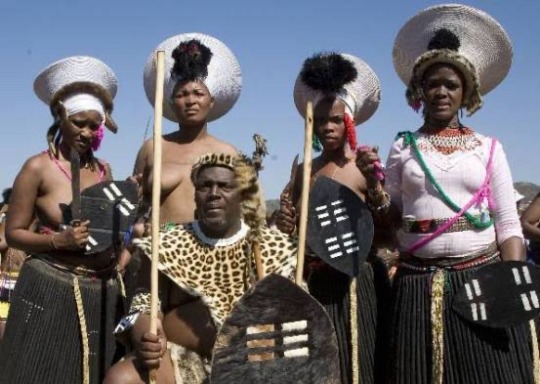
4. Health Risks: Polygamy is associated with higher rates of sexually transmitted infections (STIs) and HIV/AIDS transmission, particularly in contexts where condom use is inconsistent or taboo. Multiple sexual partners increase the risk of disease transmission, posing public health challenges in polygamous communities.
The debate over polygamy is nuanced and contentious, reflecting divergent cultural, ethical, and moral perspectives. While proponents emphasize its cultural significance and potential benefits, opponents highlight the risks of gender inequality, social harm, and health hazards associated with the practice. Ultimately, the question of whether polygamy is "good" or "bad" depends on one's values, beliefs, and the specific context in which it occurs. As societies continue to grapple with issues of gender equality, human rights, and cultural diversity, the conversation around polygamy will undoubtedly evolve.
#blackpoet#black history#polygamy#viralpost#viral trends#life#culture#animals#aesthetic#history#blm blacklivesmatter#anime and manga#architecture#black community
39 notes
·
View notes
Text
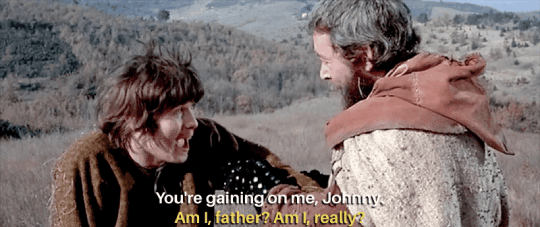
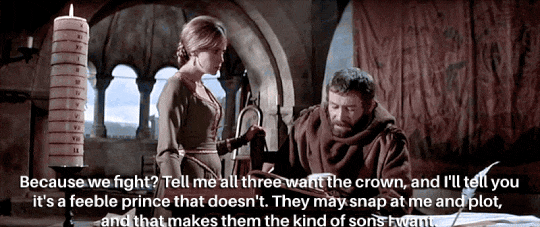
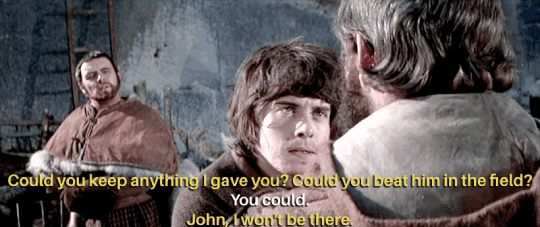
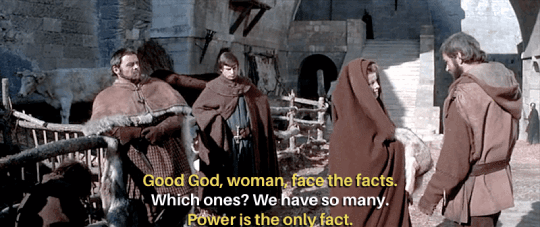
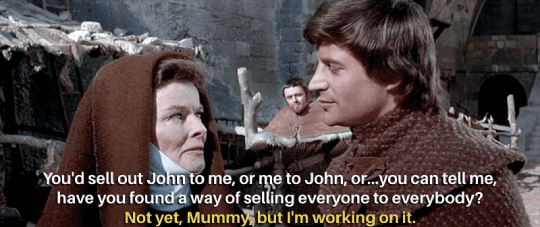
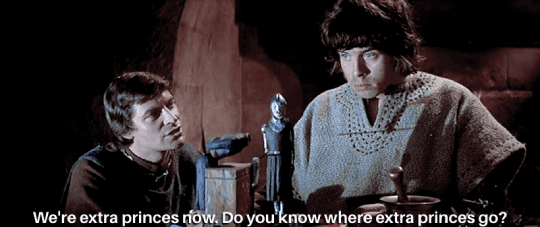
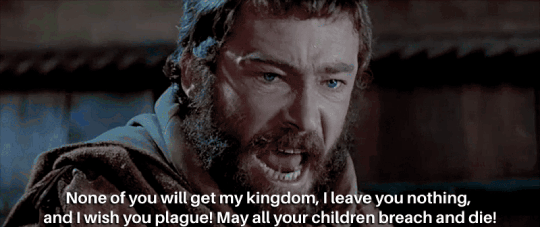
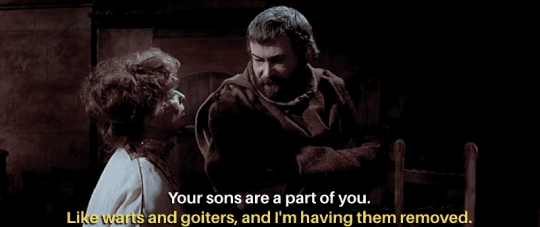
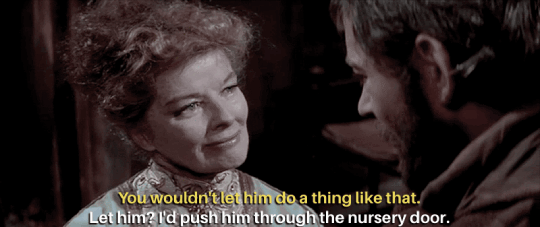
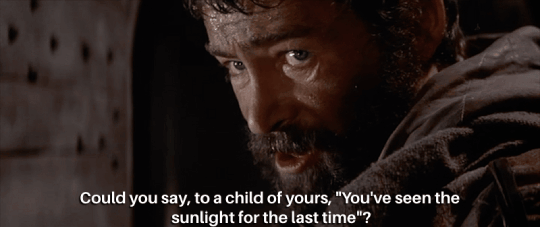
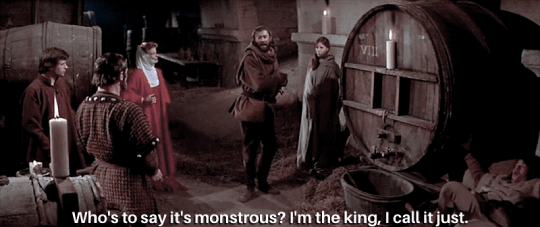
Each duke from Richard II on (like each count in Francia and aristocrat east of the Rhine) "inherited" kinsfolk with expectations, met or as yet unmet, and with the potentialities for help or harm. Each ducal kinsman, one might add, whether paternal or maternal, "inherited" the duke and the duke's sons. Each was bound to him, here by single, here by double bonds of kinship. Each needed him more or less. Calculation of a subtle kind was built into the web that Richard and Gunnor had begun to weave in the mid-tenth century. Each duke faced the problem of endowing his children. Each attempted to limit the competition among claimants, present and future. At the same time, each required for himself, and to bequeath to his designated (or eventual) successor, a network of warleaders whose loyalty to him and his line would be based both in close kinship and in satisfaction of hopes-without that loyalty being subject to erosion by claims of their own to his position. It was scarcely possible to balance all these desiderata, and that is why there was violence associated with succession in Normandy and England until the thineenth century. Each duke was continually pruning the family tree-parting kinsmen from their resources, aiding kinsmen to increase their resources-in search of his own natural allies. The dukes were remarkably good at pruning and, as I shall argue, William II was a master. But pruning was a politics of violence.
-Eleanor Searle, Predatory Kinship and the Creation of Norman Power, 840-1066
61 notes
·
View notes
Text
In England until the late sixteenth century, individual identity had been imagined not so much as the result of autonomous, personal growth in consciousness but rather as a function of social station, an individual's place in a network of social and kinship structures. Furthermore, traditional culture distinguished sharply between the nature of identity between men and women. A woman's identity was conceived almost exclusively in relation to male authority and marital status. She was less an autonomous, desiring self than any male was; she was a daughter, wife, or widow expected to be chaste, silent, and, above all, obedient. It is a profound and necessary act of historical imagination, then, to recognize innovation in the moment when Juliet impatiently invokes the coming of night and the husband she has disobediently married: "Come, gentle night; come, loving black-browed night, / Give me my Romeo" (3.2.21-23).
Recognizing that the nature of desire and identity is subject to historical change and cultural innovation can provide the basis for rereading Romeo and Juliet. Instead of an uncomplicated, if lyrically beautiful, contest between young love and "ancient grudge," the play becomes a narrative that expresses an historical conflict between old forms of identity and new modes of desire, between authority and freedom, between parental will and romantic individualism. Furthermore, though the Chorus initially sets the lovers as a pair against the background of familial hatred, the reader attentive to social detail will be struck instead by Shakespeare's care in distinguishing the circumstances between male and female lovers: "she as much in love, her means much less / To meet her new beloved anywhere" (2. Chorus 11-12, italics added). The story of "Juliet and her Romeo" may be a single narrative, but its clear internal division is drawn along the traditionally unequal lines of gender.
Because of such traditional notions of identity and gender, Elizabethan theatergoers might have recognized a paradox in the play's lyrical celebration of the beauty of awakened sexual desire in the adolescent boy and girl. By causing us to identify with Romeo and Juliet's desire for one another, the play affirms their love even while presenting it as a problem in social management. This is true not because Romeo and Juliet fall in love with forbidden or otherwise unavailable sexual partners; such is the usual state of affairs at the beginning of Shakespearian comedy, but those comedies end happily. Rather Romeo and Juliet's love is a social problem, unresolvable except by their deaths, because they dare to marry secretly in an age when legal, consummated marriage was irreversible. Secret marriage is the narrative device by which Shakespeare brings into conflict the new privilege claimed by individual desire and the traditional authority granted fathers to arrange their daughters' marriages. Secret marriage is the testing ground, in other words, of the new kind of importance being claimed by individual desire. Shakespeare's representation of the narrative outcome of this desire as tragic -- here, as later in the secret marriage that opens Othello -- may suggest something of Elizabethan society's anxiety about the social cost of romantic individualism.
gail kern paster, "romeo and juliet: a modern perspective," accompanying essay to the folger edition of romeo and juliet; emphasis mine at the parts that made me most wanna scream & shout
#the thing is that shakespeare literally did do that and romeo and juliet literally is that bitch#it is literally not overhyped at all. which is sort of inuriating. but also awesome. because it's so awesome.#romeo and juliet
335 notes
·
View notes
Text
"Their analysis work showed that the social relations of wild horses are related to kinship and familiarity of the animals.
For example, mares are closer to each other in the social network if they have been harem mates for a longer time.
Kinship may play a significant role in the organization of harems into herds since harems of sibling stallions (the single breeding male in a harem) are closer to each other in the social network than harems of unrelated stallions.
Between the closer harems, at the same time, the dispersal of mares was greater, which also contributed to the relations between harems through familiarity.
Co-author Attila Fülöp said the study has provided an exceptional opportunity to explore the social network of an entire population and its dynamics.
It turned out that older and larger harems, which typically belong to older and more experienced stallions, occupy more central locations in the herd’s social network. A possible explanation is that harem stallions form an alliance to protect their harems more effectively against the bachelor males.
'One of the surprising outcomes of the study is that we can infer future group dynamics by observing current movement,' adds Zoltán Barta, a lead author in the study.
The researchers showed that mares that lived in different harems at the time of the aerial observations but became harem mates within two years after the observations, were already moving in similar routes to the other mares. So, through the movement analysis, it was also possible to conclude which mares will leave their harem in the next two years and which harem they will transfer to."
78 notes
·
View notes
Text
On our first day at Goshi, a dispute arose over what my !Kung name was going to be, with Hwantla and an older woman each urging me to accept her name. By taking a !Kung woman’s name I would become identified as my namesake’s genealogical twin and be incorporated into her social networks, based on kinship and name-sharing. (The !Kung have fewer than thirty-five names for each gender. People with the same name are linked in a special relationship—the name relationship—which can substitute for close kinship ties and which connects them to each other’s lives in a way that would be impossible if social relations were based solely on biological kinship.)
!
71 notes
·
View notes
Text

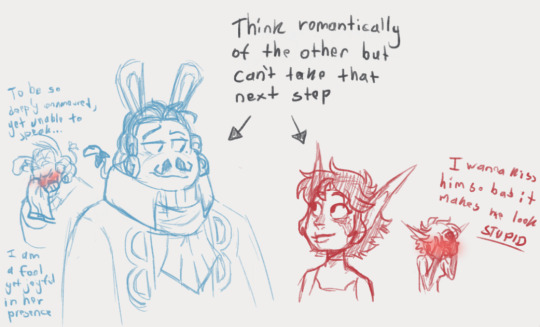
@x-rpinky-x
TEEHEE THANK U they're both disasters. Love me a good '2 idiots pining for each other' trope.
Fenix (going by Hoodlum at the time) helped Phantom shortly after the events of Kingdom Battle repair his theater at Spooky Trails and put on a musical to try and 'woo' Princess Peach. Yet in their collaboration they grew a respect for one another, into friendship, into romantic yearning.
Fenix's love of stories and genuine acting talent surprised Phantom, who had initially waived her off as 'useful, but an uncouth vagrant besides'. Phantom's charisma and clear passion for the arts delighted Fenix, who only had the recounts of Beep-0 to go off of on how Phantom was.
Closer to the events of Sparks of Hope, Fenix has a bit of a, uh, breakdown. Not interacting with others for 10 years aside from encounters with Rabbids when she used to hunt them, then suddenly being surrounded by her former quarry that have ultimately forgiven her (something she yet herself cannot do), leads to her suddenly up and leaving the Mushroom Kingdom to travel the galaxy and sort herself out (and establish Wardens along the way! Warden of Wardens, that Fenix).
But Phantom, having only be left a hasty note from someone he found kinship with, was a bit. Miffed. He left the Kingdom himself, leading to the several messy relationships and ego trips we hear of through the game leading up to DLC 3. He'd never admit it, but he subconciously was following Fenix, picking up on her trail here and there pretending he didn't care but oh he did. Being referred to as the Warden of the Space Opera Network was fine by him; he'd show Fenix just how great he had been after she left.
OFC they reunite post-DLC 3 with Fenix joining Rayman at the Network to help keep things in check, and she finds Phantom in his fckin...Basement Lair being a big sulking baby and ultimately apologizes to him for leaving as she did (though she did hear of his escapades and boy howdy she'll chew him out for that later) and all Phantom can do is quietly say he's just happy to have her back.
EVERYONE CAN SEE THEY LIKE-LIKE EACH OTHER BUT THEY CAN'T SEE IT THEMSELVES, THE FOOLS
#Cheri Art#Mario + Rabbids#Sparks of Hope#Phantom of the Bwahpera#OC#Fenix#PHEW sorry for the 'loredump'#i've been meaning to type up a brief synopsis of their relationship and it just kinda worked here
43 notes
·
View notes
Text
literally don't understand why people are anti winc*st like early season spn is a horror drama about The Family (the collapse of the family unit being the motivator for hunting; hunting as kinship network of damaged family units; hunting as a net from which you can never escape; the family as a net from which you can never escape). also: a show that hates women so much that incest seems like the less problematic option, shipping wise.
like i don't really ship it due to i haven't had spn opinions since i was probably 13 years old, but at least it's more interesting thematic and social commentary than the replacement ship, which requires me to posit christian cosmology as true, and also is boring.
#i literally don't remember that many people even writing fic that DIDNT CONDEMN IT like iirc a ~happy ending~ was often framed as a tragedy#i simply don't understand what's upsetting ITS MORE COHERENT TO THE TONE OF THE SHOW. which is supernatural (ha) horror. so....?
50 notes
·
View notes
Text
Today i bring you something that is not a headcanon but the actual truth : if He Xiaohui/ Master He had the chance to actually meet dfs they would be besties.
I know they would meet each other, immediately feel a strong sense of kinship, He Xiaohui would start bitching about everything wrong in the Jianghu, dfs would just hum approvingly and add some incriminating information he know about major figure of the martial art scene, and this would create on of the strongest friendship in the country.
Positive impacts : they have nice afternoon meetings where they complain together about stuff and talk about the stock market or smth, dfs learn about building machines that do stuff and thus develop another hobby outside of fighting, they welcome into Tianji Manor all the kids from Di Mansion that did not manage to find their family after being freed and develop together a network of protection against human trafficking in the region.
Negative impacts : fdb fear for his life but the one that should actually worry the most is llh because Master He decided that if he was the favorite person ever of her son and favorite son-in-law he better start taking good care of his health.
36 notes
·
View notes
Text
Kurdish ecology. Indigenous seeds and food heritage. Palestinian edible plant archive. Ezidi foods and reverence for landscapes. The narratives of “exiled foods.” Suryani, Zaza, Kurdish, and Armenian displacement. Okra and mustard greens. Dispossession and native plants in Anatolia and the Mediterranean. Imagining alternative worlds and affirmative care structures. Landscapes breathing in slow, deep time. Seed exchanges and “entanglement of solidarity” across regions in defiance of military surveillance, industrial monoculture, and extraction. “Homeland is not where you were born, it is where you are fed.”
---
Okra is strong and can survive the precarity of exile and migration: it can be found in a Bangladeshi vegetable stand in Rome, an Ezidi camp in Diyarbakır, or a guerilla garden along the highway in Kowloon. Okra is one of the world’s oldest cultivated crops, spread by the processes of colonization and the slave trade from Africa and India to the Mediterranean and westward to the new world. Its versatility makes it well suited for states of dispossession and survival. [...] The colonization and standardization of landscapes is always rooted in controlling the cultivation and erasure of localities. [...] Today, the same region [Anatolia and the Mediterranean] is inundated with wars and oppressions that destroy not only biodiversity but also the intangible heritage of ingredients and their narratives across our earth.
“Survival-with” and “through” is something of an entangled kinship that can be described as migrating ingredients, refugee seeds, and exiled foods. Works by artists Seçkin Aydın and Gülsün Karamustafa deal with forced eviction and exile from their homelands in different historical periods in the last century in Anatolia. Aydın is a Zaza minority from an evicted Kurdish town called Kulp (Diyarbakır Province). His work I can’t carry my grandma, i can also not eat her or wear her (2015) uses the metaphor of Aydın’s grandma keeping small fruits in his pocket during their journey of exile when he was a child. [...]
Karamustafa’s work Heimat Ist Wo Mann Isst (1994) depicts three spoons wrapped in an old cloth. The title means “Homeland is not where you were born, it is where you are fed,” which refers to cross-Balkan and Anatolian transnational migration.
---
Practices of collecting and archiving heirloom seeds are a form of solidarity and resistance against extractive capitalism and industrialized agriculture. Such projects protect and aim to restore natural habitats and biodiversity. They are critical of dominant monocultural approaches [...]. How can we consider a more-than-human ethics around seed and seed heritage? How can we collect cross-narrative assemblages of seed heritage? [...]
Indigenous phenomenologies are essential for tracing food heritage and the ingredients that are tightly connected to local communities of Zazas, Ezidis, Armenians, Suryanis, Kurds, and others who are continuously exiled by force in the ongoing extracted landscapes of the Tigris. Often with colleagues we find ourselves discussing, for example, the giyayê xerdelê (mustard greens) that can be easily foraged in the hills of Heskîf, a millennia-old archeological heritage site that has almost been destroyed by the nearby Ilisu Dam, which justifies the expropriation of lands from Kurdish villages and from many nomadic shepherds who were forced to leave. Military surveillance of farmers and of the common grazing grounds of Ezidi, Suryani, and Kurdish villages leads to a loss of the network [...].
Kurdish ecology activists Bişar İçli and Zeki Kanay, who were banned from their municipality and their university positions by the Turkish government in 2017, started an agro-ecological solidarity commune in Diyarbakır. They archive, exchange, and create networks of seeds around the Tigris River basin, producing an entanglement of solidarity infrastructure among Kurdish communities against military surveillance and capitalism-led extraction in this region.
---
Cineria, an Ezidi village near Batman, Turkey, was nearly emptied out in the 1980s due to conflict in the region between the Kurdish movement and the Turkish state. [...] Soil, stone, rocks, caves, and water are fundamental cosmological elements of Ezidi cultural practice connecting the past, present, and future. Each year the village hosts semi-nomadic Zaza shepherds who migrate from another southeastern Turkish city, Bitlis [...]. The Ezidis accommodate the shepherds for six to seven months in Cineria; both communities communicate using the Kurmanji language. [...]
Long walks through landscapes are a basic practice of Ezidi women, where they learn about the land and the cultivation cycle connected to Ezidi cosmology, which is about keeping and protecting ingredients, seeds, and healthy soil. Honouring nonhuman elements is fundamental to Ezidi cosmology. As Ezidi women walk through the landscape, they tell stories of dispossession, mourn for lost soil and seeds, and whisper continously: “av, agîr, erd, ba, roj.” [...]
---
Palestinian geographer Omar Tesdell, who created the Palestinian edible plants archive, tells us that landscapes move in slow, deep time, and that all wild plants, seeds, and healthy soil are our heritages. These heritages will not only support our precarious societies but may create an ethical, responsible entanglement of resilient coexistences for our collective future. [...]
Following an okra plant through narratives, infrastructures, forgotten languages, and entangled exiles is not a metaphor. As artist Jumana Manna writes, we strive toward “imagining alternative/affirmative care structures that remain, within and beyond the current reality, aligned towards plant and human life alike.” Navigating through migrating ingredients, refugee seeds, and exiled foods, we witness and learn about extractive strategies, state-making, and slow violence.
---
Text by: Pelin Tan. “Entangled Exiles.” e-flux (journal). Issue 131. November 2022. [Italicized first paragraph/heading added by me.]
291 notes
·
View notes
Text
Asexual Manifesto 2022: Radical Asexual Politics, 50 Years On

"So when I talk about asexuality I don't mean some sort of sanitized model of identity politics invested in being recognized and affirmed (by capitalism)." — Alok Vaid-Menon
"Nobody in the world, nobody in history, has ever gotten their freedom by appealing to the moral sense of the people who were oppressing them." — Assata Shakur
Asexuality is an inherently radical concept, but being asexual doesn't make a person radical in practice. This manifesto is a call to action for asexual community as much as it a provocation to queer and cisgender heterosexual society at large. A person does not need to "be" asexual in order to practice a radical asexual politics. If we as a collective seek to establish a just society, we must engage in radical asexual politics as necessary (but not sufficient) for achieving collective liberation.
Radical asexual politics is the practice of intellectually deconstructing and socially dismantling the sexually normative aspects of society, including race, color, ethnicity, class, caste, creed, ability, age, size, gender, sex, sexuality, religion, nationality, reproduction, and other categories of social organization and segmentation. Radical asexual politics harnesses the negativity associated with asexuality, the so-called "absence" or "lack" of sexuality, to clean the slate of sexual normativity and rewrite society as a place of liberation, including but not limited to sexual liberation.
Radical asexual politics is anti-capitalist, anti-racist, and anti-colonial. It rejects the organization of society around production and reproduction and reclaims all forms of pleasure (sexual and non-sexual) from their conscription into serving capital and hierarchies of power. It rejects the use of asexual identity to uphold racist ideologies and systems and reclaims sexual self-determination for all peoples. It rejects the social prioritization of monogamous couples and nuclear families and reclaims the kinship ties and familial networks that empire decimated.
To manifest a radical asexuality, we must act from a place of collectivism. We must practice solidarity within and across categories of difference. We must practice humble consciousness-raising and self-correction for the good of the group. We practice the following principles up until they no longer serve the collective, as determined by the wisdom of future workers laboring for liberation.
We reject bioessentialism and reclaim our power of self-determination.
"Born this way" and "made this way" narratives alike are unimportant to the work of asexual liberation, and in fact distract from it. Policing the reality of asexuality — whether it comes from nature, nurture, or a person's free choice to affiliate with asexuality — concedes to the state and its institutions the power to categorize, regulate, and oppress the body. We take back our power to choose and use our bodies in ways that we decide, we enjoy, and we thrive.
We reject the concentration of power in individuals and organizations and reclaim the power of the collective.
Cooperation with governments and concession to authorities, directly through cops and legislation and indirectly through nonprofit regulations, impede the work of asexual liberation. Putting icons on pedestals distracts from the work of asexual liberation. Our power is distributed throughout our people. We take back our power to organize our own queer families, relationships, communities, and societies, on terms that privilege not sexual bonds but whatever affective affiliations are important to the collective, independent of regulatory systems. We invest in our collective not through appeals to the authorities who seek our annihilation — not through waiting for legalization and protection — but through self-sustaining mutual aid.
We reject top-down regulation and reclaim community and egalitarian accountability.
Cop mentality destroys community. Labels are useful because words are powerful. But they can also be a powerful way for those with power to sow division among those deprived of power, in order to prevent our organizing to reclaim our power. We beware those bad actors by investing in robust community accountability, oriented towards repair rather than punishment. We reject the cop mentality of ideological purity in favor of the "constant change of heart" of consciousness-raising (bell hooks). We commit to humble and generous self-reflection on the ways that we perpetuate sexual normativity at every level of society, turning away from hierarchy and leaning on each other as we collectively learn and grow towards thriving, free of oppression.
We reject mere visibility and reclaim the power of direct action.
Visibility without self-defense exposes our people to violence. Raising awareness concedes our power of self-determination to our oppressors, whereas raising our own consciousness of the operations of sexual normativity equips us to liberate ourselves. We exercise our right to opacity (Édouard Glissant) as we forge our own present and future where we will enjoy our sexual freedom (the freedom to engage as much or as little as we want with sex). We take our own actions against sexual normativity, spiting the systems that perpetuate it and making real our asexual dreams for freedom.
We reject capitalist competition and reclaim erotic excellence.
Capitalist society is a society of scarcity. In our pursuit of physical and spiritual nourishment, capitalism demands that we compete against each other and ultimately against our own interests, expending our energies on the fight to meet our mere needs. We eschew the deprivation inherent to lateral oppression and embrace collective abundance. We pursue erotic excellence (Audre Lorde), that fundamental drive for pleasure and joy and fulfillment in all our labors, not just sex, as we work together in community towards our mutual liberation.
363 notes
·
View notes
Text

Queer love is magical. It teaches you that love can exist in so many forms outside the heteronormative narratives that are taught to us when we are young. If people only saw it for its power than hatred, we would be so much further advanced in understanding concepts of love.
The rise of Anti-Trans rhetoric and Anti-Queer rhetoric is another rejection of love that is not bound to heteronormative values. The truth is that when my Queer / Trans BIPOC friends are constantly being harmed, shamed, and threatened to be removed from the planet that's another example of how white supremacy wants to uproot us. It's forgotten that the fossils below the ground have always stored Queer ecological memories. People oppose our existence. The way we rise from the depths of the soil is through nurturing our networks for survival. If only people saw queer love as a way to embrace multifaceted values of kinship, care, and understanding.
If we saw queer love that way, our "leaders" wouldn’t be focusing on trying to ban drag shows. Many of those who decide to choose violence want us to be removed from life itself. We decide to spread love despite the hatred we get - we choose the rawest form of love which is to hope they continue to find the pain that hurts them and heal unresolved trauma that's redirected to the entirely wrong group of people.
Queerness is an embodiment of living in co existence with others. If you don’t like that, then you are the issue.
-qbv
#queerbrownvegan#sustainability#climate crisis#environmental justice#social justice#activism#environmentalism#queer#bipoc#intersectionality#intersectional environmentalism#lgbtq#lgbtq2s#lgbtq community#america
102 notes
·
View notes
Text
"Over the past few decades, many of us have experienced living in an accelerating social system of organised loneliness. We have been encouraged to feel and act like hyper-individualized, competitive subjects who primarily look out for ourselves. But in order to really thrive we need caring communities. We need localised environments in which we can fluorish: in which we can support each other and generate networks of belonging. We need conditions that both support our abilities and nurture our interdependencies.
This is because issues of care are not just bound up with the intimacy of very close relationships, such as family and kinship. They also take shape in the environments we inhabit and move through--in local communities, neighborhoods, libraries, schools and parks, in our social networks, and the groups we belong to.
But how do we create the kind of caring communities that make our lives better, happier, and even, in some cases, possible? What kind of infrastructures are necessary to create communities that care?....We argue that there are four core features to the creation of caring communities: mutual support, public space, shared resources and local democracy....Caring communities need to be strengthened, pluralised and diversified by building up these four features, which, brought together, form what we call a 'sharing infrastructure' at community level."
The Care Collective, The Care Manifesto: The Politics of Interdependence
#The Care Manifesto#The Care Collective#readings#quotations#ethics of care#this book is kinda mid but I like the explanation of organised loneliness
29 notes
·
View notes